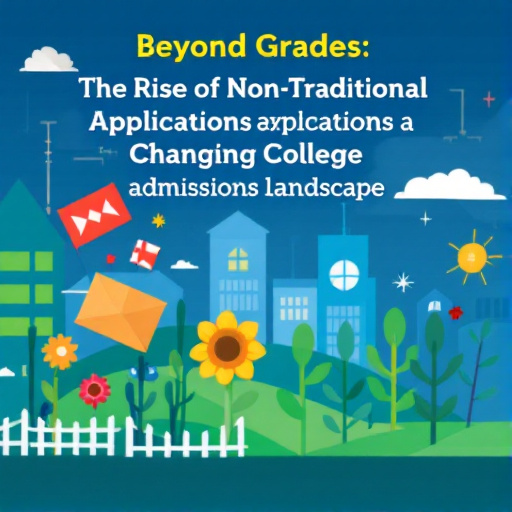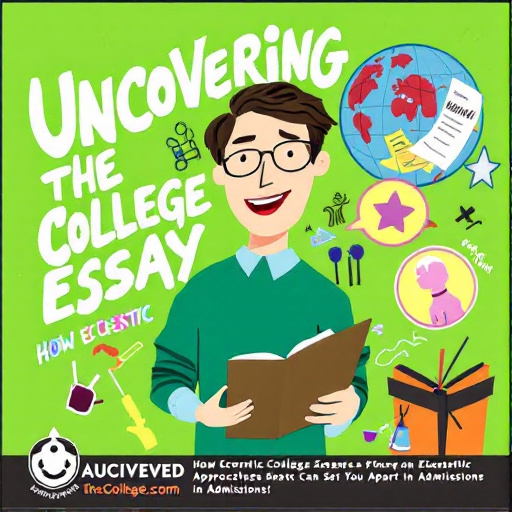Featured Articles
- 5 Unexpected Financial Aid Secrets Every College Applicant Must Know Before You Submit
- "Beyond Grades: How Mental Health Spaces Are Shaping College Applications in 2023"
- "Beyond Grades: The Rise of Non-Traditional Applications in a Changing College Admissions Landscape"
- Beyond the Basics: How TikTok Influencers are Shaping College Application Trends in 2023
- The Hidden Cost of College Applications: How Mental Health Influences Admission Success
The Hidden Cost of College Applications: How Mental Health Influences Admission Success
The Hidden Cost of College Applications: How Mental Health Influences Admission Success
As college application season approaches, the hidden cost of this journey often goes unnoticed: mental health. This article explores how the pressures of admissions affect students’ mental well-being and ultimately influence their success, interweaving various insights, statistics, and personal stories.
The Pressure Cooker Environment
In recent years, the college application process has transformed into a high-pressure event for students. Driven by increasingly competitive admission standards, many high school seniors feel like they are on a relentless treadmill, chasing after GPAs, SAT scores, and extracurricular accolades.
As a 22-year-old college graduate looking back, I can vividly remember those feelings. I even had a friend who started sleeping less than five hours a night as she prepared for her applications. It’s no surprise that a survey conducted by the American Psychological Association (APA) revealed that 61% of teens feel overwhelming anxiety related to school, particularly during the college application process (APA, 2021).
The Stats Don’t Lie
Consider these startling statistics: in 2022, 1 in 3 college students reported experiencing serious psychological distress, according to the National College Health Assessment (NCHA). With college competition getting fiercer—40% of applicants to top-tier schools had perfect GPAs in 2022, up from 25% a decade ago—students are facing immense expectations (NACAC, 2021).
Case Study: The Overachiever Syndrome
Take Emma, a high-achieving 17-year-old from New York, who was the epitome of an overachiever. She headed three clubs, volunteered at a local shelter, and had an impeccable GPA. Yet, as she neared application deadlines, her anxiety skyrocketed. The weight of expectations burdened her so much that she sought therapy, a reality for many students ensnared in the overachiever syndrome.
Breaking the Silence: Stories from the Trenches
Many students don’t voice their struggles out of fear of judgment or inadequacy. According to the Yale School of Medicine, 40% of college students reported feeling so stressed that they felt overwhelmed, leading many to hide their true emotions (Yale, 2020). These stories, often brushed aside as mere complaints, can have serious implications on a student’s psychological health.
Chatting with my college buddy Carl, it struck me how much this issue isn’t just a “kids these days” phenomenon. He told me that during his application process, he had a mental breakdown the night before submitting his applications. “I was up for 24 hours, puke in a bucket, crying into my laptop,” he laughed, but with a hint of seriousness. “You don’t realize how much pressure you place on yourself until it’s too late.”
What’s at Stake?
Mental health struggles aren’t merely a phase; they can lead to long-term consequences that extend well beyond the application process. In a longitudinal study from the University of Michigan, students with high anxiety during their application period had lower graduation rates, underscoring the inherent link between mental health and academic success (UMich, 2022).
Positioning Mental Health in College Admissions
As schools and colleges begin to recognize the mental health implications of applications, changes are slowly emerging. Some universities, like the University of California system, have started to implement holistic admissions processes that look beyond GPA and test scores, and instead focus on each student's personal story and mental health challenges. This is an encouraging shift towards understanding the broader scope of potential in students.
Creating Supportive Environments
The key to alleviating this hidden cost lies in support systems. High schools must foster environments that emphasize well-being alongside academic achievement. Guidance counselors trained in mental health awareness can better assist overwhelmed students as they navigate the turbulent waters of college applications.
Humor: A Coping Strategy
Some students have found humor to be an effective coping mechanism. Last year, a meme page dedicated to college admissions exploded with funny memes about the ridiculousness of the whole process. “At this rate, I’ll just submit my cat’s Instagram account as my application,” one post read. Laughter, after all, is often the best medicine.
Self-Care: Taking a Step Back
Including mental health awareness as an integral part of the college application process can lead to healthier, more balanced approaches. For instance, teaching self-care techniques such as mindfulness, meditation, or simply encouraging breaks can profoundly impact students' mental states.
In another case study, a group of students from a local high school created “Stress-Free Sundays,” where no schoolwork was allowed, and friends would gather for games, baking, or group workouts. The teachers initially met this with skepticism, but the initiative led to improved academic performance and graduation rates. Stimulating conversations and a sense of community can uplift students battling isolation.
Parent Perspectives
Parents also play a pivotal role in how their children approach this stressful process. A study from the Journal of Educational Psychology found that parental pressure could correlate with higher levels of anxiety in students (Journal of ED, 2022). Parents should aim to be supportive rather than authoritative, nurturing their child’s passion and individuality instead of embedding expectations that are too high.
In Conclusion
Every year, students scramble to become the “ideal candidate,” often neglecting their mental health in the process. It’s crucial for students, parents, educators, and universities to recognize that success in college admissions does not solely hinge on a perfect GPA or remarkable test scores.
Ultimately, fostering a balanced approach that emphasizes mental health can create not only happier students but also a more holistic college admissions landscape, one that recognizes potential beyond grades. College should be a journey filled with self-discovery and growth—not a burden that weighs students down.
As we advocate for change, we stand to break the stigma around mental health in academia, recalibrating the narratives surrounding success. In the end, our society must strive to cultivate environments where students can not just survive—their experiences should be rich, fulfilling, and ultimately healthy.




